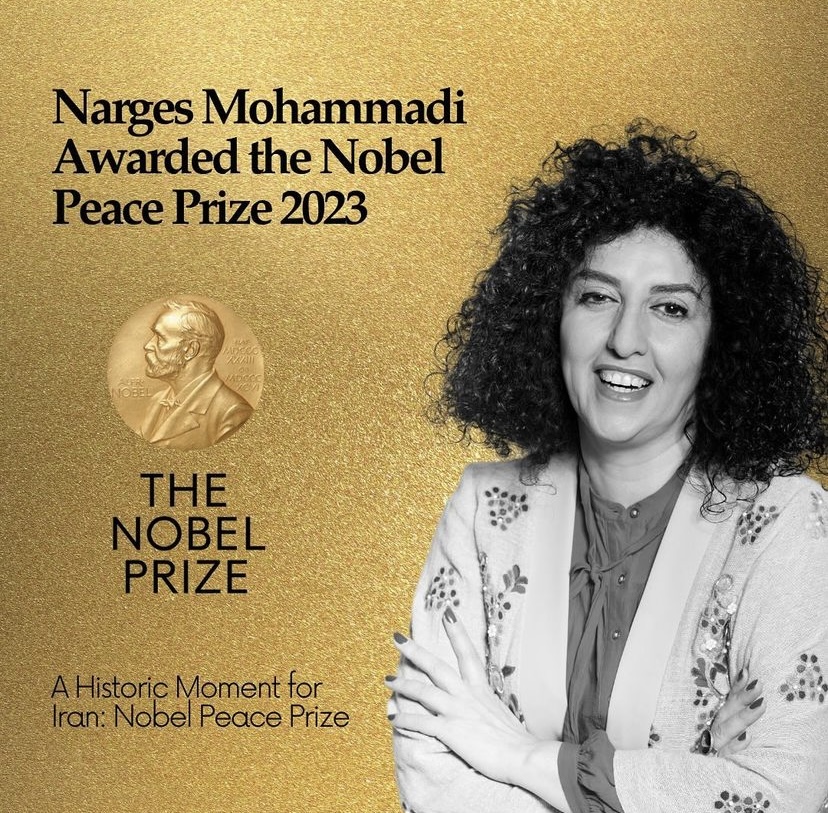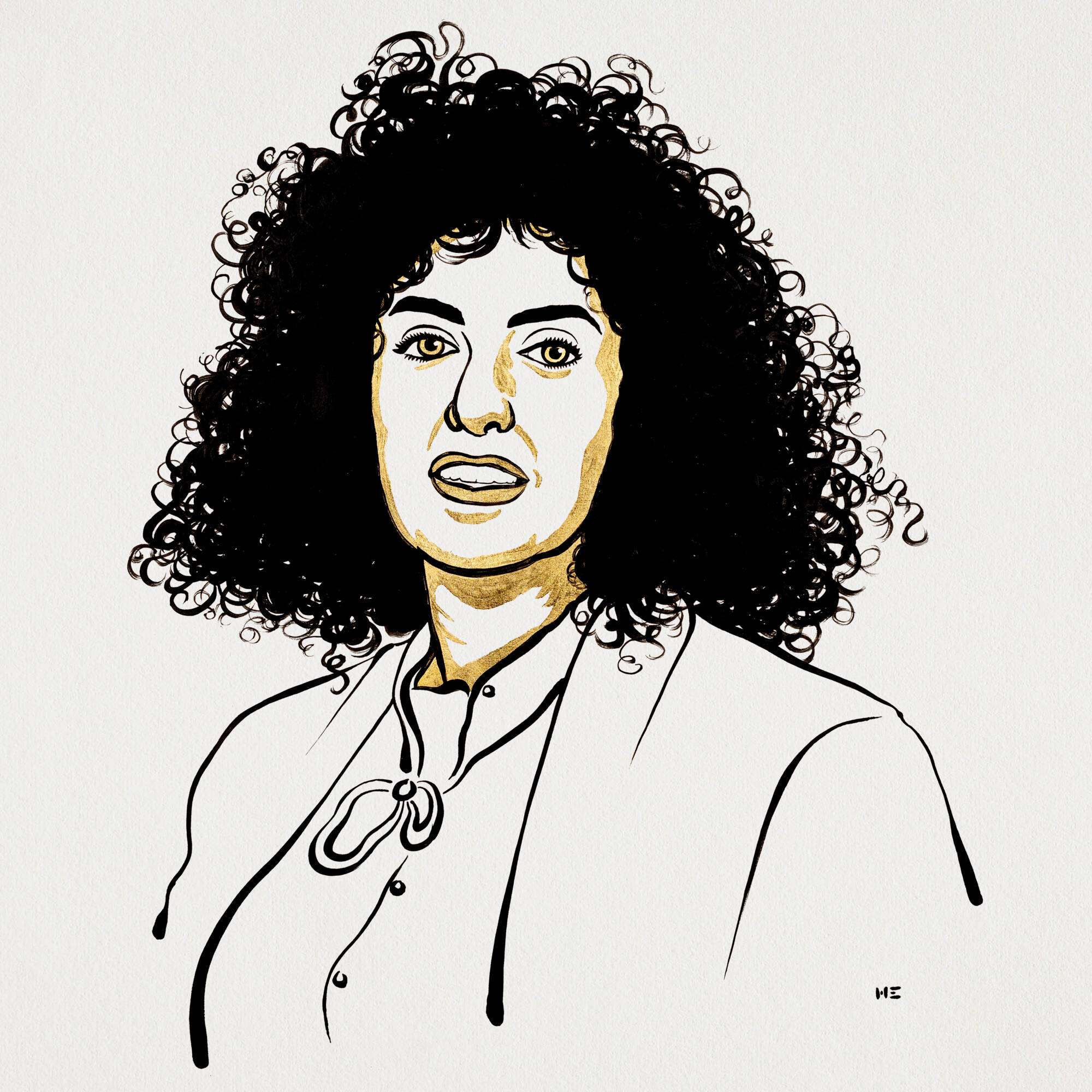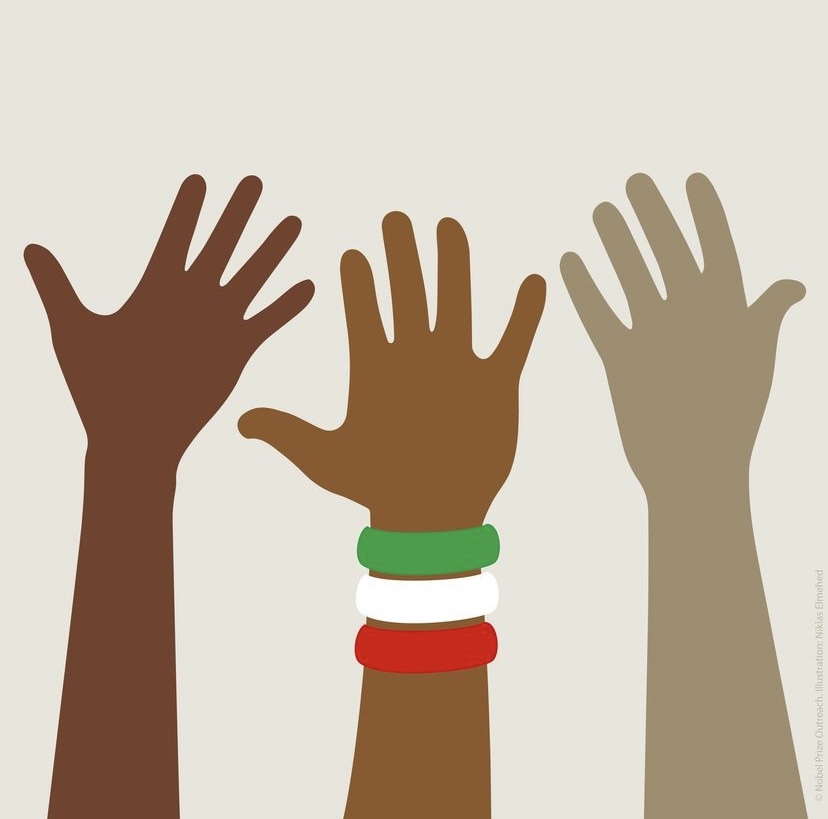By Michaela Cleary, Contributing Writer
From the confines of her prison cell in Tehran, Iran, Narges Mohammadi was awarded the prestigious Nobel Peace Prize for her immense contributions to women’s rights in her home country of Iran.
The Nobel Peace Prize is presented to those working to advance social justice, human rights, equality, and democracy. Many notable recipients of this award include Marie Curie, Albert Einstein, and Mother Theresa.
Mohammadi’s work for women’s rights dates to the early 1990s. After receiving a degree in physics from Qazvin International University, she worked as a columnist for a reform-minded newspaper. She continued her columnist position until 2003 when she became involved with the Defenders of Human Rights Center.


This organization was founded by the Nobel Peace Prize laureate Shirin Ebadi. The focus of this organization was to further advocate for women’s rights, political protests, and minorities.
Mohammadi was arrested for the first time in 2011 for her assistance in aiding incarcerated activists and their families. Despite this challenge, Mohammadi did not allow this to set her back in her efforts for systematic change.
Two years later, after her release from prison, she became involved in a campaign against the excessive use of the death penalty in Iranian prisons. However, this involvement resulted in Mohammadi’s second arrest in 2015.
When she returned to prison, she used this as another opportunity to fight. She began protesting the use of torture and sexualized violence against women.
Since her initial imprisonment back in 2011, Mohammadi has been arrested 13 times and sentenced to 31 years in prison, with another 154 whip lashes. This egregious act is a common punishment in the Iranian prison system.


In a continued effort to fight, while in prison, Mohammadi used her knowledge and skill of writing to craft an article detailing her experiences and efforts to further support women’s rights and justice. This article was promptly received and published by the New York Times. When the Iranian prison heard of this, Mohammadi was no longer able to receive any phone calls or visitors, to ensure more of her writings would not be read or published.
The fight for women’s rights is a continued battle, especially for those in Iran. Although Mohammadi will remain in prison for another 10 years, she has not waivered her stance and values, as she plans to continue her advocacy efforts for the remainder of her life.
Berit Reiss-Andersen, Chair of the Norwegian Nobel Committee, gave a press conference on October 6 announcing Mohammadi as the recipient of the award.

“Narges Mohammadi is a woman, a human right’s activist, and a freedom fighter,” Reiss-Anderson shared.
“Only by embracing equal rights for all can the world achieve the fraternity between nations that Alfred Nobel sought to promote,” Reiss-Anderson continued.
Courageousness, selflessness, and determination are all characteristics of a Nobel Peace Prize winner. Narges Mohammadi clearly embodies each of these values, making her a more than worthy recipient choice.





